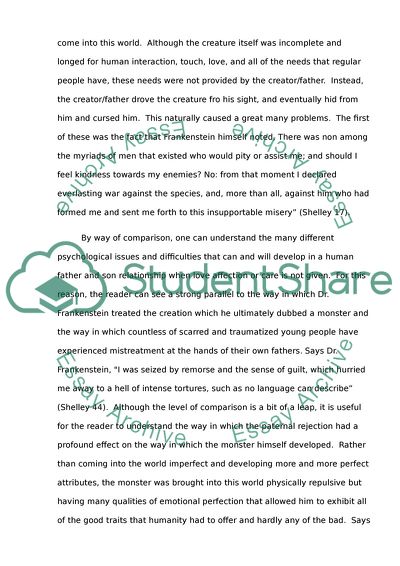Cite this document
(Frankenstein and Dr. Jekyll and Mr. Hyde: An Analysis of Relationships Essay, n.d.)
Frankenstein and Dr. Jekyll and Mr. Hyde: An Analysis of Relationships Essay. https://studentshare.org/literature/1795694-describe-the-relationship-between-frankenstein-and-the-monster-then-compare-it-to-the-relationship-between-dr-jekyll-and-mr-hyde
Frankenstein and Dr. Jekyll and Mr. Hyde: An Analysis of Relationships Essay. https://studentshare.org/literature/1795694-describe-the-relationship-between-frankenstein-and-the-monster-then-compare-it-to-the-relationship-between-dr-jekyll-and-mr-hyde
(Frankenstein and Dr. Jekyll and Mr. Hyde: An Analysis of Relationships Essay)
Frankenstein and Dr. Jekyll and Mr. Hyde: An Analysis of Relationships Essay. https://studentshare.org/literature/1795694-describe-the-relationship-between-frankenstein-and-the-monster-then-compare-it-to-the-relationship-between-dr-jekyll-and-mr-hyde.
Frankenstein and Dr. Jekyll and Mr. Hyde: An Analysis of Relationships Essay. https://studentshare.org/literature/1795694-describe-the-relationship-between-frankenstein-and-the-monster-then-compare-it-to-the-relationship-between-dr-jekyll-and-mr-hyde.
“Frankenstein and Dr. Jekyll and Mr. Hyde: An Analysis of Relationships Essay”. https://studentshare.org/literature/1795694-describe-the-relationship-between-frankenstein-and-the-monster-then-compare-it-to-the-relationship-between-dr-jekyll-and-mr-hyde.


